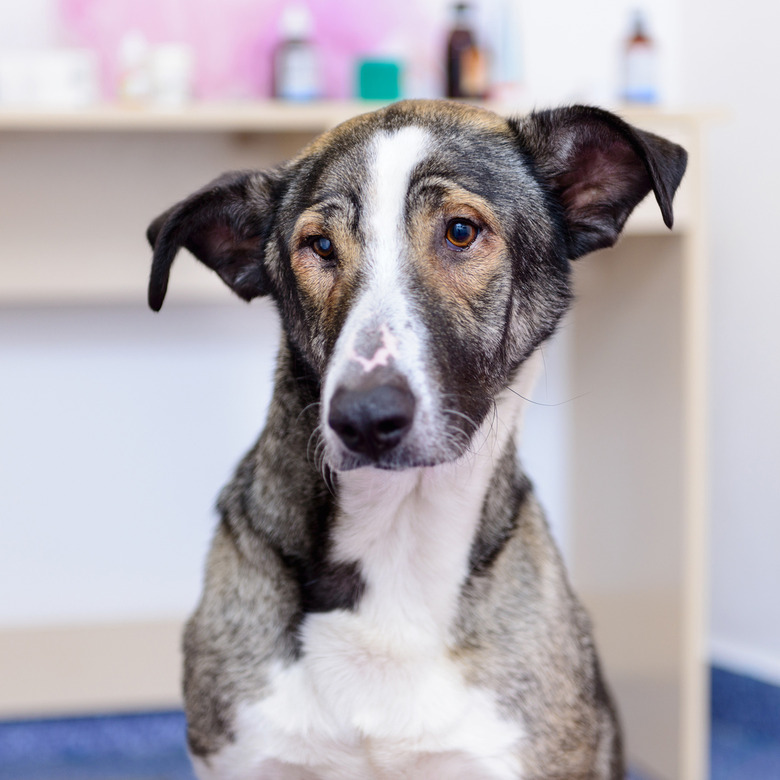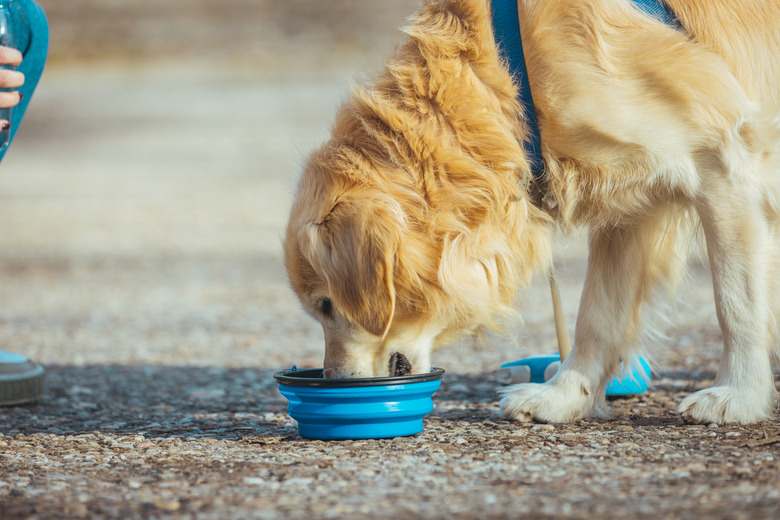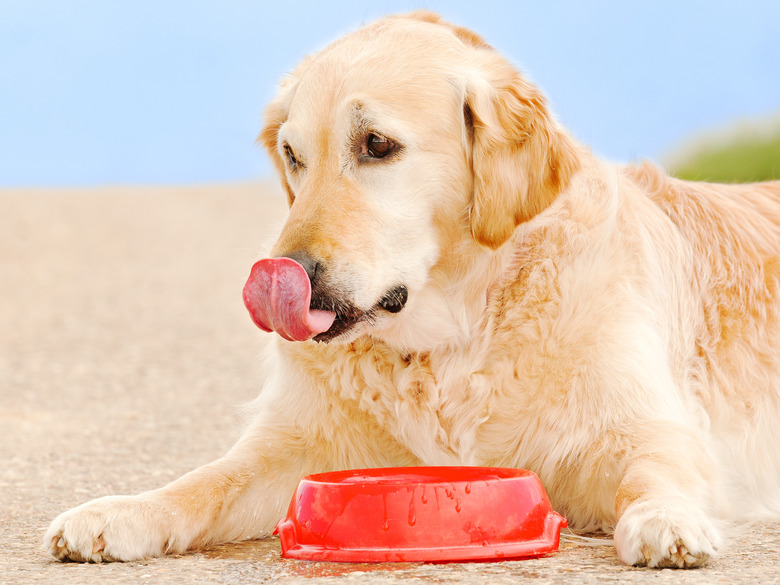How To Treat Mucus In A Dog's Stool
When cleaning up after your dog, whether after a walk, in the yard, the house, or, heaven forbid, your bed, did you notice a bit of mucus in their poop? Though unappealing, just a bit of mucus in a dog's stool usually is not cause for alarm since mucus in a dog's stool can be totally normal. But, if your dog is experiencing diarrhea and mucus, a bland diet may help get things back to normal.
Potential causes for mucus in a dog's stool
Potential causes for mucus in a dog's stool
Your dog's intestines produce mucus to keep the lining of his colon moist, so it's not unusual to see traces of the slimy substance in their poop. However, there are a few instances that are cause for concern. If the mucus is accompanied by blood, if the dog has mucus in the stool, or his bowel movements have changed significantly, it may be time to treat the mucus in the dog's stool. Potential causes of mucus, blood and runny stool include:
- Inflammation of the colon, known as colitis
- Dietary reaction
- Intestinal parasites
- Viral or bacterial infection
- Inflammatory bowel disease or other autoimmune disorders
- Stress
- Allergies
- Foreign objects in the intestinal tract
- Tumors, cancer and polyps
How to keep your dog hydrated during diarrhea
How to keep your dog hydrated during diarrhea
Dog poop covered in mucus is normal, there's nothing to treat if your dog shows no other symptoms. However, if you see blood in their poop and their normally firm poop is loose or liquid, they may be experiencing diarrhea.
If that fits the description of what's happening with your dog, make sure your dog drinks plenty of water to ensure he doesn't become dehydrated. This is especially important if their stool is runny, and they are making frequent trips outside. If your dog becomes dehydrated, you can try adding some low-sodium chicken broth.
What to feed your dog with diarrhea
What to feed your dog with diarrhea
A bout of diarrhea often clears up on its own. Feed your dog a bland diet of boiled, skinless chicken breast and cooked rice, noodles or potatoes in a 1 to 3 ratio. A teaspoon or two of canned, unsweetened pumpkin will also firm up his stool.
Try this bland diet for 48 hours. If you still do not see improvement, reach out to your veterinarian.
Visiting the veterinarian for diarrhea
Visiting the veterinarian for diarrhea
If a bland diet and a little extra fiber does not help return your dog's poop back to normal in a couple of days, it may be time to take them to the doctor. The veterinarian can review symptoms, medical history and run appropriate tests, including fecal samples and a urine test, to determine if there's something more complicated causing mucus in the stool and diarrhea. Treatment will depend on the cause and can include medication such as antibiotics or dietary adjustments.
Black stool or diarrhea can indicate blood in the intestinal tract and requires a veterinary visit. If your dog is lethargic, appears to be in pain, or will not drink water — see the veterinarian.
Treatment for mucus in stool of dogs
Treatment for mucus in stool of dogs
If your veterinarian finds that your dog has an abnormal amount of mucus in their stool, or diarrhea that just won't quit, you can expect a couple of different kind of treatment for mucus in stool. They will most likely recommend some sort of treatment for mucus in the stool of dogs. While dietary changes may be the first method recommended to try, the veterinarian may also prescribe a probiotic supplement. There are some cases that may require medication that will depend on the underlying cause.
In this veterinarian-reviewed article, it's noted that mucus in a dog's poop is typically not cause for concern. However, if you see blood in their poop and their normally firm poop is loose, they may be experiencing diarrhea. It is recommended to treat a dog's diarrhea with a bland diet for 48 hours. If their condition does not improve, call your veterinarian.


